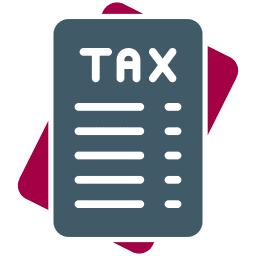How Can We Help
Contact us to find out how TRW Accountants can help you with your accounting needs.
Providing Independent Financial Advice In Lancashire
Understanding Corporation Tax
Especially if your new business has only recently undergone company formation, you may not yet be familiar with how corporation tax works beyond the basics. However, those little details really affect how much you’ll be paying at the end of each tax year, and in turn that affects your business. Today, we want to walk you through some of the most common confusions.
How Can We Help
Contact us to find out how TRW Accountants can help you with your accounting needs.
Providing Independent Financial Advice In Lancashire
Who Has to Pay Corporation Tax?
Most notably, sole traders and partnerships are not liable for corporation tax. If your organisation is a limited company or an overseas company with a branch in the UK, of if you are a club or co-operative, you are liable for corporation tax on profits from doing business.
(If you came here to check how it affects your business and after reading that you’re suddenly worried this may apply to your unincorporated community group, the big litmus test here is whether or not they profit from doing business. For the majority of these organisations this isn’t an issue, but do make sure your treasurer is aware of the issue so they can confirm whether or not it will be a factor for you.)
For the purpose of corporation tax, your taxable profits include trading profits from doing business, chargeable gains from selling your assets at a profit, and any returns on investments.
How Can We Help
Contact us to find out how TRW Accountants can help you with your accounting needs.
Providing Independent Financial Advice In Lancashire
Do You Need to Register for Corporation Tax?
Limited companies are already registered for corporation tax, but if you want to manage your corporation tax online you’ll want to add the relevant services to your business tax account. The government provides a guide on this here, but if you’re using us for your accounting needs, this will have been done as part of company formation.

Providing Independent Financial Advice In Lancashire
How Do I Calculate Profit for Corporation Tax?
Corporation tax is calculated after paying salaries and other deductible business expenses and before the withdrawal of dividends.
You can claim capital allowances for machinery, other equipment, and businesses vehicles bought for your business, as well as the ongoing costs of running your business. However, if you or your employees get personal use from something, it must be treated as a benefit.
Expenses incurred entertaining clients are not permitted for corporation tax.
There are also various other reliefs available including R&D, profit from patented inventions, as well as reliefs for creative industries. We would recommend discussing specific relief opportunities with a tax accountant who can confirm which you may qualify for.
Lastly (but most importantly for many small companies) there is marginal relief.

Providing Independent Financial Advice In Lancashire
Understanding Marginal Relief
At the time of writing, the full rate of corporation tax is 25%, and this rate applies if your profits are over £250,000.
Companies with profit of under £50,000 pay a small profits rate set at 19%.
If your profit is between £50,000 and £250,000 after deductions, you can qualify for marginal relief. This is effectively a sliding scale gradually increasing from 19% to 25%, and the government provides a marginal relief calculator for this purpose.
It’s worth noting that if there are associated companies with yours, these calculations change; this is due to legislation to prevent a single business being broken into smaller sections which each qualify from small profits rates or at least marginal relief.

Providing Independent Financial Advice In Lancashire
What Happens if You Pay Corporation Tax Early?
You may have heard that there are positives to paying your corporation tax early. This is true; HMRC will pay interest on corporation tax payments made ahead of time. This is known as credit interest, and it is set at 1% lower than the Bank of England base rate.
Interest is paid from the date you pay until the payment deadline, but the earliest date where interest will be paid is 6 months and 13 days after your accounting period begins.
This interest is allocated on the day of the payment deadline, and yes – your interest received is taxable income.
Interest is not paid on an overpayment of taxes, and small sums are usually carried forward to be offset against future tax liabilities rather than repaid.
Putting all of this together, there are times when paying your corporation tax early is a benefit, provided that you have the cashflow to do so without affecting your liquidity.
However, by paying early you are losing the ability to use that money in the meantime – in fact, that’s why HMRC offers credit interest on early payment, as a fair compensation.
Whether or not this is worth doing in any given tax year will vary, and we would recommend checking with an accountant before making the decision. Of course, one thing we definitely recommend against is any late payment!
To discuss this further, please get in touch – we’ll be happy to help.

Professional Accounting And Financial Advice
Contact TRW Accountants
Address:
TRW Accountants
95 King Street
Lancaster, LA1 1RH
Contact Details:
Tel: 01524 64187
Fax: 01524 60029
Email: office@tr-w.co.uk
Registered in England and Wales. Registered office – as above. Company registration 03851905




